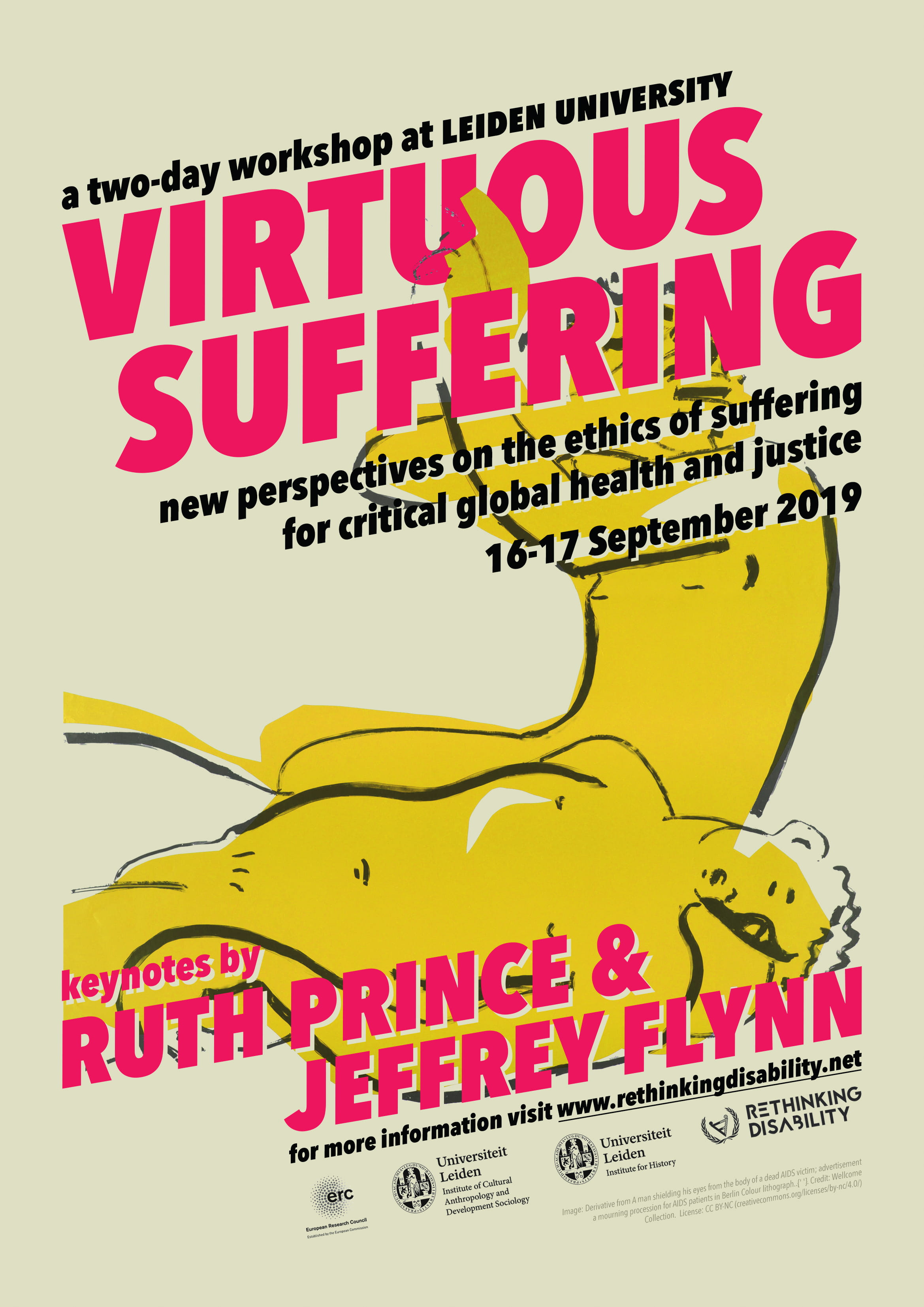
Two-day workshop at Leiden University: 16-17 September 2019
Keynote speakers:
Jeffrey Flynn (Associate Professor, Fordham University)
Ruth Prince (Associate Professor, University of Oslo)
Can suffering be positive? Currently dominant discourses, primarily voiced through human rights activism and humanitarianism, maintain the opposite: suffering, mentally and physically, has to be avoided and where it exists, it has to be reduced. Global public health approaches are at the frontline of this fight against suffering. Within and beyond public health, researchers from a range of disciplines have inquired into the human experience of suffering, primarily focusing on its negative dimensions, even though some have argued for the importance of going beyond the suffering subject in order to look for resilience. But what if people do not want to avoid suffering? What if they, for example, see it as an avenue for self-improvement? How, when and why do people accord positive value to the suffering of themselves or others, for example by transforming useless suffering into suffering for something or through evaluating suffering as necessary purification? What is the role of religion in such alternative valuations of suffering? And how are ideas of suffering transforming through regimes of law and order in favor of severe punishments including the infliction of pain? We propose that addressing these questions to critically assess dominant perceptions of suffering is a much-needed contribution to (critical) global health approaches in light of the ever-expanding use of humanitarian discourses both locally and globally.
The workshop will build on scholarship (in anthropology) on ethics and moralities that articulate the productive potential of failure and suffering and critical (historical) scholarship of human rights, humanitarianism, social justice and global health. We invite abstracts that address one or more of the following themes from participants’ various thematic areas of specialization:
– Conceptualizing suffering: different discourses and the role of concepts and (non) human actors
– Appropriating suffering: individual and collective practices and the role of religion and social movements
– Ordering suffering: different relations between the ‘lived experience’ and the political-legal order
– Negotiating suffering: ‘local’ approaches to the ‘global’ governance of health and well-being
– Researching suffering: theoretical, methodological and ethical reflections on the articulation of disruptive and silenced voices
Original proposals are invited from anthropologists, historians and scholars from related fields at any stage of their careers and with diverse geographical backgrounds. We aim at providing an informal setting in which selected participants will present their research (up to 20 minutes) and engage in an open exchange of ideas and perspectives. If you wish to participate in the workshop, please send an abstract of about 350 words and a short CV no later than 15 May to the following email address: rethinkingdisability@hum.leidenuniv.nl. Questions to the organizers can be sent using the same address. Notification of acceptance will be given by 1 June.
The conference will take place at Leiden University, in close vicinity to Amsterdam Airport (Schiphol). Catering will be offered to all selected participants at no cost, but participants will be expected to cover their own travel and accommodation expenses. If you have any specific (accessibility) requirements, please let us know and we will do our best to accommodate such requests. The workshop is initiated by Annemarie Samuels (Institute of Cultural Anthropology and Development Sociology) and Paul van Trigt (Institute for History) and hosted by the research team of the ERC project ‘Rethinking Disability: the Global Impact of the International Year of Disabled Persons (1981) in Historical Perspective’, based in the Institute for History at Leiden University.